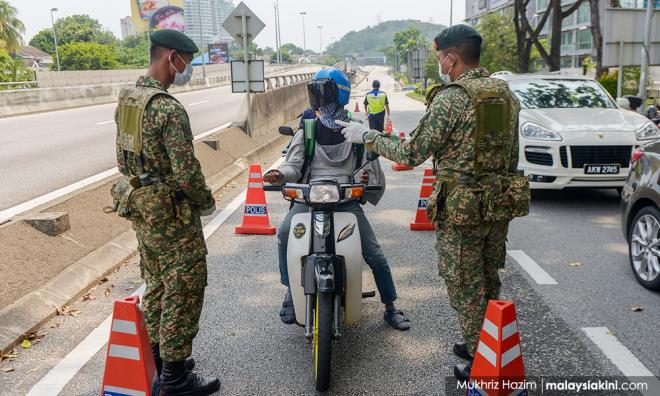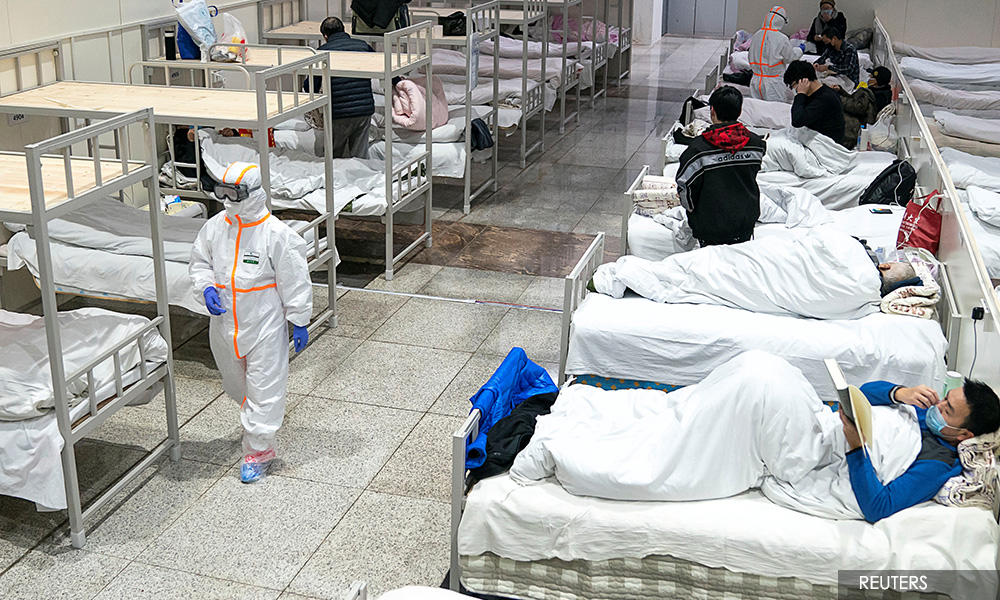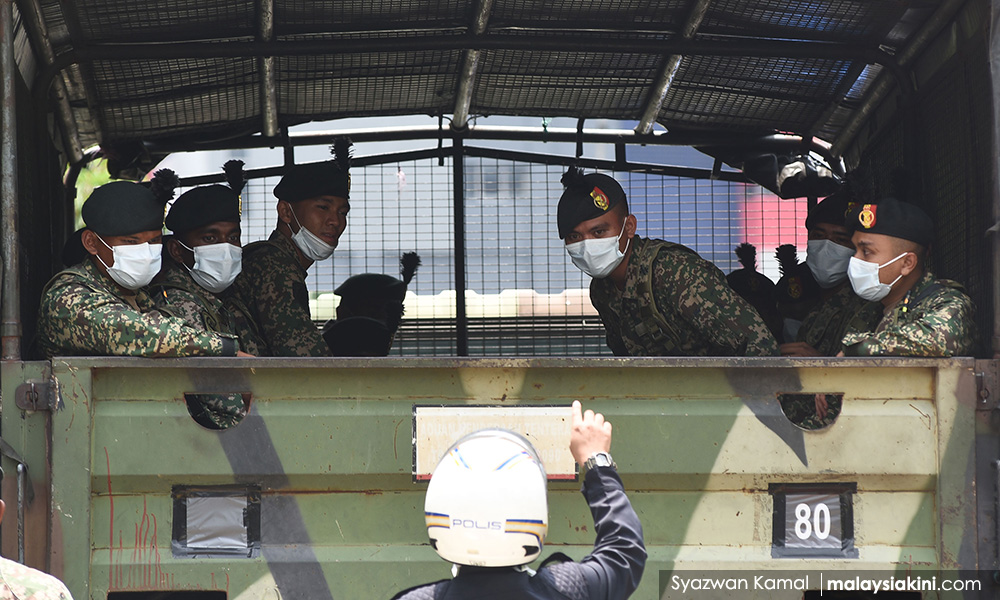
Many countries have roped in the military to help combat the coronavirus invasion since it is seen as better able to enforce strict compliance with the rules laid down for the people to follow.
Malaysia, too, has called out the army to help the police the roadblocks and patrol the streets. The presence of the soldiers did have an impact as the numbers of violators had declined.
But the army must do more than man the roadblocks or nab the law-breakers. The soldiers must also focus their resources and energy on fighting the real enemy - Covid-19.
To engage this unseen enemy, the soldiers must roll up their sleeves, and "attack" the virus: sweep the streets, clean the public toilets, disinfect all public places and buildings, and distribute masks and sanitisers to all villages old and new.
In addition, they must flex their muscles and help build makeshift hospitals or camps to assist doctors and nurses take care of the patients.
They can also use their trucks to transport critical medical equipment to hospitals besides conveying food supplies to supermarkets and even small grocery stores.
All these measures mean tapping the full resources of the army to complement the work of civilian doctors.
The medical units in the military wing should be deployed in places where coronavirus cases have spiked. Its medical personnel can support quarantine operations by treating patients in, say, military bases temporarily converted into sick bays.

In the event that the healthcare system reaches breaking point, warships could be reconfigured into hospitals for quarantine purposes. If need be, military helicopters can transport sick patients to these floating hospitals.
The army need not only be located in urban areas; the soldiers can be sent to remote areas to help rural people cope with life-threatening situations as a result of the viral infection. They can use their trucks to convey patients to hospitals in the towns or an army hospital base.
In a situation where there is a critical shortage of food, the soldiers can transport food and hand it out to the residents. Or even play a parental role by feeding the elderly and the children.
But the bigger task is to hunt down the visible enemies, wherever they are. They are potential carriers of the virus who refused to "surrender" after having attended a mass prayer gathering.
Many of them have gone missing, thus posing a serious health hazard to the general populace.
The troops must move fast to get these recalcitrant and irresponsible citizens out before they inflict great harm on the country.
Visit their homes. Visit their working places (if they are with the essential services). Search for them even in the remotest parts of the country. Detain them on the spot.

The use of the military is only justified in times of a national crisis. This is a national crisis on a monumental scale because Covid-19 is an adversary which can cause wholesale destruction if not checked.
But soldiers, more primed to fighting human enemies in real wars than an invisible invader, must exercise great care and caution when carrying out their duties. Sometimes using soldiers to enforce the laws could lead to abuse of power.
As long as there is no breakdown in law and order, the armed forces must not use confrontational approach to deal with the population. A harsh crackdown would only exacerbate an already tense situation.
Covid-19 is everywhere. Even the soldiers can be taken down in the line of frontline duty. A military response is mostly to contain the contagion while the search for a vaccine is intensified.
Until a cure is found, the country can only batten down the hatches and wait for the vaccine to come - or for the virus to pass.
PHLIP RODRIGUES is a retired journalist. - Mkini



No comments:
Post a Comment
Note: Only a member of this blog may post a comment.